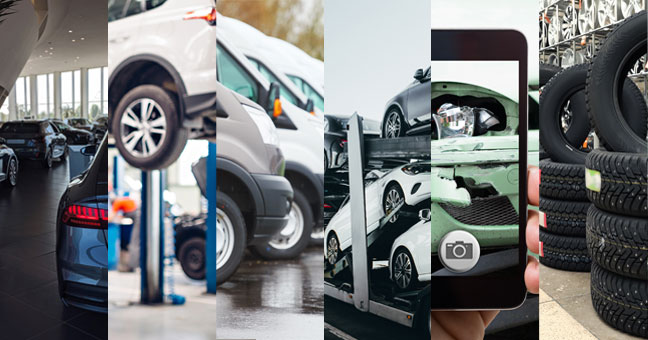The auto insurance industry, after several years of experiencing unprecedented increases in loss ratio, managed to stem the tide in 2023 by posting a 104.9% mark, a 7% improvement from the prior year that still remains as a net loss. As these organizations continue to see business in the red, owner behavior is shifting in a manner that could easily see a return to loss increases. According to LexisNexis, high claim severity persists, and increased EV sales (up 54% year-over-year) could also inflate loss due to their increased susceptibility to total loss.
Vehicle technology is increasing in complexity besides EVs, and that complexity is a prime driver in added repair and claim costs. A recent AAA report that repairs focused on Advanced Driver Assistance Systems (ADAS) make up over 37.6% of repair costs after a crash. The industry-wide trend toward full vehicle automation is also fundamentally shifting risk from the driver to the car, and insurance risk modeling has not yet caught up to satisfactorily factor this in. McKinsey writes that this “connected revolution” in the automotive industry “means insurance coverage will likely need to shift from drivers to the automakers and software companies responsible for the development and maintenance of various autonomous-driving technologies.”
Dec 18 2024
Apr 4 2024
The auto insurance market in 2024 is not friendly to consumers. Providers, perhaps in an effort to mitigate rising loss ratio, have increased premiums by 26% in the past year, with plans for these costs to remain elevated through 2025. Consequently, consumers have flocked to auto insurance shopping sites and quoting portals to hunt for the provider that will impact their budget the least, with TransUnion noticing a 12% increase in shopping rates year-over-year in 2023.
The question for auto insurance lead generators and comparative raters is, beyond investing heavily in your market outreach (which is not guaranteed to succeed), how do you stand out as an exceptional product in a market that is both in demand and heavily saturated? How do you make your leads more appealing than your competitor’s leads?
Read MoreTopics: Insurance
Jan 16 2024
We live in a world that is swiftly traveling towards a fully digital age, making data collection through form submission an integral part of the internet. One of the easiest ways to add significant value to the quoting portals and online lead generations for insurance and warranty is through reverse VIN lookup. Consumers are now able to easily enter their known vehicle details immediately without requiring a VIN, which can push leads through the necessary fields with a higher completion rate. The end users (insurance companies and warranty providers) can act on these leads more efficiently because they have the VIN pattern generated from this tool. Lastly, these companies encourage trust with the consumers by providing users with an experience first while still effectively collecting the necessary data.
Read MoreTopics: VIN, Insurance, Risk Management
Dec 5 2023
DataOne Software’s blog this year has emphasized the impact of increasing vehicle complexity within a wide swath of the automotive industry, and we are not going to be short on topics any time soon. The latest innovation that has captured the investment dollars of the tech sector, “AI” (which in truth is a mislabeling of the technology – it should more appropriately be called a Large Language Model) is now making its way into OEMs’ development plans, and automotive risk assessment professionals will need to closely consider its ramifications to avoid unexpected losses.
Read MoreTopics: Insurance, Automotive Technology, AI
Nov 28 2023
The economic conditions of the early 2020s had a unique impact on the automotive industry. Dubbed trimflation by car culture website Autopian, the output in entry-level models was greatly reduced, while high-margin trims became more commonplace and MSRPs were increased across the board. UMass Amherst Professor Isabella Weber noted, “Companies in the automobile sector [amplified] price pressures enabled by a form of temporary monopoly granted by the computer chip shortages. This allowed car producers to focus on expensive models with higher margins and generally raise prices without having to fear a loss in market share.”
Read MoreTopics: VIN, Insurance, Risk Management
Jun 7 2023
The automotive industry is running parallel races toward fully electrified and fully autonomous vehicles, and both races have a deceptively close finish line. EVs will become the norm within 10 years due to a combination of government legislation and manufacturer mandates – Progressive estimates that EVs could comprise 40% of car sales by 2030. Vehicle autonomy, meanwhile, remains a top priority for OEMs as well, with the market projected to reach $200 billion by the end of the decade. Mercedes-Benz is already certified for Level 3 autonomy, a standard that encompasses conditional hands-free driving, suggesting that Level 5 (totally automated driving) is a feasible goal for automakers more quickly than initially anticipated.
The technology involved in developing electrified, autonomous vehicles will not be universal; each feature package will have its own unique benefits, drawbacks, and relationship to road conditions and driver capabilities. Consequently, auto insurers cannot treat “ADAS” or “EV” as monolithic or even loosely segmented variables in their risk analysis; all levels of the organization must have a comprehensive understanding of their car’s technology stack to maintain a balanced risk-to-rate ratio. 
Read MoreMar 21 2023
Traditional risk models in the auto insurance space incorporate multiple data points, including vehicle details, the driver’s safety record, the vehicle’s geographic location, and that location’s associated weather patterns. While these factors may be weighed differently by each insurer’s model, the entire auto industry is now facing the reality that increased vehicle complexity will force a significant change to risk analysis.
Read MoreTopics: Automotive Data, Insurance
Oct 7 2021
In a previous article, we discussed how businesses can leverage a commercial VIN decoding solution to identify vehicle specs by VIN, as well as which specs are often included. In this article, we are going to dive into which businesses benefit from this functionality. The short answer is just about any industry that has anything to do with vehicles, their maintenance, financing, insurance, or transportation. Here’s a deeper dive into some of the most popular use cases for vehicle specs identification by VIN:
Read MoreTopics: Logistics, VIN, Parts & Services, Insurance, Vehicle Equipment, Dealers, Fleet Management, Risk Management
Aug 31 2021
Beyond just misleading, limited data can harm your business. Market analyst, Gartner, found that 27% of the data in the Fortune 1000 companies is considered flawed, which they defined as inaccurate, incomplete, or duplicated. According to their research, poor quality data leads to high costs, a high customer turnover rate and excessive expenses. IBM estimates that bad data costs the US economy roughly $3.1 trillion dollars each year. They also found that 1 in 3 business leaders don’t trust the information they use to make decisions. Experian Data, in a separate study, determined that flawed data impacts the bottom line of nearly 90% of all American companies.
Read MoreTopics: Insurance, Risk Management, Finance
Aug 19 2020
Today’s automotive landscape is much different than 20 years ago, with the average life of a vehicle at a record high of 11.8 years. Automotive manufacturers across the board are building high-quality, longer-lasting vehicles, provided the owner keeps up with maintenance.
Read MoreTopics: Automotive Data, Parts & Services, Insurance, Dealers










